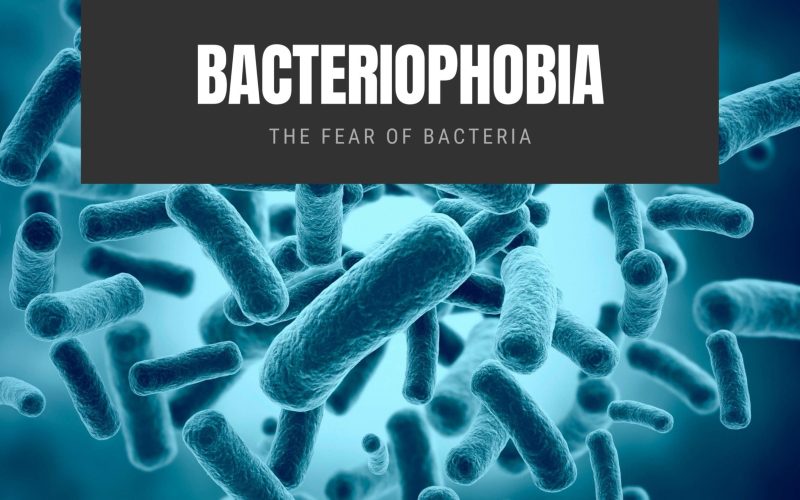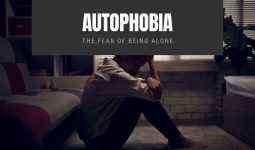Bacteriophobia can be described as the fear of bacteria. It is one of the many specific phobias.
People who have this irrational fear often feel that they will one day die from the infestation of bacteria.
Oftentimes, people mix up bacteriophobia and germophobia. Although these two are related, they can’t be used interchangeably.
While bacteriophobia refers to the irrational fear of bacteria, germophobia refers to the irrational fear of germs.
Germs majority are made up of not only bacteria alone but also of viruses as well as fungi.
Other names of bacteriophobia include bacillophobia and microphobia. Just like other phobias, most people who have bacteriophobia try to avoid their fears and run away from bacteria at all costs.
However, the reality is that we have bacteria is all around us, even in our body system.
What are the Causes of Bacteriophobia?
Just like many other specific phobias, there is no known cause for this disorder; however, scientists speculate that most times, bacteriophobia can be caused as a result of a combination of both environmental and genetic factors.
Bacteriophobia is believed to begin either in childhood or during the patient’s teenage years. Environmental factors are often due to specific occurrences, such as traumatic events.
According to research, people who suffer from phobias generally have been exposed to their fear while they were quite young, and this could be the reason why they have their phobias.
Usually, people who have bacteriophobia may have had a loved one who has a case of a bacterial infection at a young age, and that may have been the trigger.
Also, it is possible for the cause to be a result of genetic factors. Certain practices and beliefs about the importance of cleanliness and hygiene may also result in this irrational phobia.
If you have had a family member who has a phobia or a mental illness, then it is quite possible for you to develop any kind of phobia, including bacteriophobia.
According to researchers, it is believed that heredity and genetics, when combined with environmental factors, can result in a case of bacteriophobia.
Symptoms of Bacteriophobia
Bacteriophobia, just like most phobias are to be taken seriously, and its signs should be taken into consideration. If a person fails to recognize the symptoms, it can cause a limitation in the life of the patient.
It is true that we all have fears, but those who have phobias tend to go to great lengths in order to avoid their concerns.
The fear and anxiety that the phobia for bacteria causes is often much more than the infection that bacteria causes.
Most people who have bacteriophobia often exhibit symptoms that are common to most phobias.
However, in this case, their signs are in relation to the thoughts and conditions that involve bacteria. The symptoms of bacteriophobia can be classified namely:
1. Physical symptoms
The first major physical sign you will notice about a person who has bacteriophobia is that the patient will keep experiencing severe panic attacks. Most of these attacks can be distressing and frightening for the person who suffers from them.
Some may tend to see things that aren’t there, leading to anxiety. These panic attacks often occur suddenly and without prior signals or warnings.
Most panic attacks often occur with physical signs such as intense sweating, trembling or shaking of hands, and chills or flushes, severe difficulties in breathing.
Sometimes, patients may have additional symptoms such as a severe choking sensation, tachycardia, which is characterized by rapid heartbeats and breathing, severe chest tightness, headaches, nausea, feeling faint, needles, and pins sensation and dry mouth.
If you have anxiety attacks, you may likely show signs of severe confusion and disorientation, hyperventilation, an increase in blood pressure, the inability sometimes to hold urine or control bowel movement, leading to the need to use the toilet, uncontrollable tensing of the muscles and ringing in the ears.
Asides these symptoms written above, children tend to experience an additional set of symptoms, and they include; tantrums and excessive crying, difficulties in sleeping, vehement refusal to leave their parents or guardian, low self-esteem as well as nervous movements.
Most people who have this condition may also have OCD (Obsessive Compulsive Disorder). If these are the symptoms that you are experiencing, then you just may be having an anxiety attack.
2. Emotional and Psychological Symptoms
These symptoms concern what goes in the head and the patient’s mind. If you suffer from bacteriophobia, you may most likely experience emotional symptoms such as;
- Intense fear of bacteria or anything related to it.
- Anxiety, nervousness, and/or panic attacks whenever you are exposed to areas where germs or bacteria may be in.
- Thoughts of being exposed to bacteria can cause the patient to suddenly fall ill or, in some extreme cases, something worse.
- If you find yourself always trying to remove or distract yourself from thoughts, scenarios, talks, or places that have anything to do with bacteria.
- I always have this sense of powerlessness to deal with bacteria or the thoughts of bacteria.
3. Behavioral Symptoms
These set of symptoms are usually seen when a patient who suffers from bacteriophobia leading to a change of behavior.
These symptoms include:
- Always avoiding scenes or places that can lead one to be exposed to bacteria.
- Always spending so much time thinking about how to avoid situations or going to places that may have bacteria in it or on it.
- Difficulties in functioning at maximum capacity in your home, your place of work, your school, or any public gathering because of the fear of bacteria or germs in general. For example, people who have this condition are seen to have this need to wash their hands excessively or clean their tables, chairs, or anywhere they want to use or perceive germs to be.
Is Bacteriophobia Related to Obsessive-compulsive Disorder (OCD)?
One question that is often on the mind of many patients is, “Do I have OCD once I have bacteriophobia?” According to research, having bacteriophobia doesn’t necessarily mean you have developed OCD.
Although these two conditions can occur simultaneously, however, it doesn’t mean that they are co-dependent.
In other words, although these a patient can have both OCD and bacteriophobia, however, it doesn’t mean once you have one, you automatically have the other. A patient can have bacteriophobia without having OCD and vice versa.
The major difference between people who have these conditions is that for people who have OCD, they have this compulsive disorder to always clean, and it is mostly done in order to help them reduce their anxieties.
However, for people who have bacteriophobia, they clean because they sense the need to remove any form of bacteria on their path. Hence, they always feel the need to clean and sanitize everywhere.
Impacts of Bacteriophobia on Lifestyle
Like other phobias, the fear of coming into contact with bacteria can become severe and, as such, can affect one’s daily routine. Most people with this fear tend not to want to leave their rooms.
They try to make their houses as sterile as possible and, as such, consider other places aside from their rooms or their homes as contaminated and infected with bacteria. They mostly go to great lengths to avoid anything that might contaminate them.
Simple activities such as having fun by going to the park, having to go to the restaurant, or even things that are as natural as having sex are considered an “abomination” to them.
They also try to avoid certain places that will draw a crowd. Places such as schools, workplaces and offices, bus stations, salons and so on are considered as germ-filled places and as such, they try to avoid them altogether.
Certain actions such as shaking hands and hugging people, touching of doorknobs and handles, leaning on surfaces are often very difficult for them and, as such, will lead to them completely keeping to themselves.
Because of these actions, sometimes, their fears may lead them to have compulsive disorders. People who have bacteriophobia are often seen to excessively wash their hands, excessively wipe surfaces clean, and shower almost all the time.
Although these actions in itself may actually reduce the rate at which they may become infected, however, all these procedures are time-consuming and make them all too conscious of their environment.
This can be a bad thing, and it can make them lose concentration on the other important things in life.
Diagnosis
Although many people don’t like bacteria and germs as a whole, however, for people who suffer bacteriophobia, their anxiety is heightened when exposed to general conditions.
To diagnose this specific phobia, your doctor will recommend an interview where he/she will ask you questions about your fears. Your doctor will also ask questions about your symptoms, your family history, current medical history, and psychiatric history.
These questions are done to help you rule out other possibilities of any underlying condition and also to help your doctor give you an accurate diagnosis.
During this little chat with your doctor, he or she may ask you if you have any existing disorders, such as OCD. This is done in order to rule out the possibility of you having Obsessive-Compulsive Disorder.
Treatment
While most people try to prevent bacteria from getting into their bodies, it is essential to know that we have both the healthy and the unhealthy ones.
The treatment options for a person who has bacteriophobia is to enable the patient to get a bit more comfortable with bacteria and also realize that these microbes are part of our everyday lives.
Generally, like most phobias, bacteriophobia is treated using three methods, namely:
1. Therapy
Psychotherapy is a form of treatment that involves having a discussion with your therapist. This counseling session helps you face your fears and enables you to understand that your concerns aren’t real.
For most phobias, including bacteriophobia, the most effective forms of therapy are exposure therapy and Cognitive Behavioural Therapy (CBT).
Exposure therapy is done by teaching the patient that his/her fear isn’t real and then, gradually exposing the patient to their concerns in a controlled manner.
Usually, your therapist will gradually introduce your triggers to you, walk you through overcoming them, and note your response to your fears. The goal of this process is to reduce and overtime completely eliminate your fear of bacteria.
Cognitive Behavioural Therapy, on the other hand, also comprises of exposure therapy as well as other procedures. These procedures include learning a set of coping skills that can help you adapt and deal with your fears when they arise.
2. Medications
Generally, using therapy as a way of treating most phobias is sufficient. However, in cases where therapy doesn’t work, then your doctor may prescribe the use of specific drugs for you to use.
The function of these drugs is to help relieve some of the symptoms that you experience when dealing with bacteriophobia. Some of these medications include:
- Selective Serotonin Reuptake Inhibitors (SSRIs)
- Serotonin Norepinephrine Reuptake Inhibitors (SNRIs)
However, some medications specifically help to reduce the levels of anxiety that you face.
They include;
- Beta-blockers
- Sedatives
- Antihistamines
3. Self-mediated help
Your doctor may recommend that you have a lifestyle change and begin home remedies that can help you relieve your fear of bacteria.
The use of remedies includes;
- Practicing intentional mindfulness and/or meditation. This is to help you focus and target your anxiety.
- Application of other relaxation methods such as yoga and breathing exercises.
- Intentional participation in activities
- Ensure you get enough rest and sleep
- You must eat healthily, too
- You must seek out a support group.
- Anytime your fears arise, you must take courage and confront those situations
- Reduce your stimulant and caffeine consumption
In conclusion, it is absolutely normal to dislike bacteria and also feel concerned about them. However, when the fear begins to hamper and disrupt your life, your ability to work, socialize, meet with people, or study, it then becomes a thing of concern.
If you feel that your anxiety about bacteria is already hindering your life, then you need to speak to your doctor or therapist about it. To dislike bacteria isn’t bad, but when it makes you too anxious, you should discuss it with your doctor.








